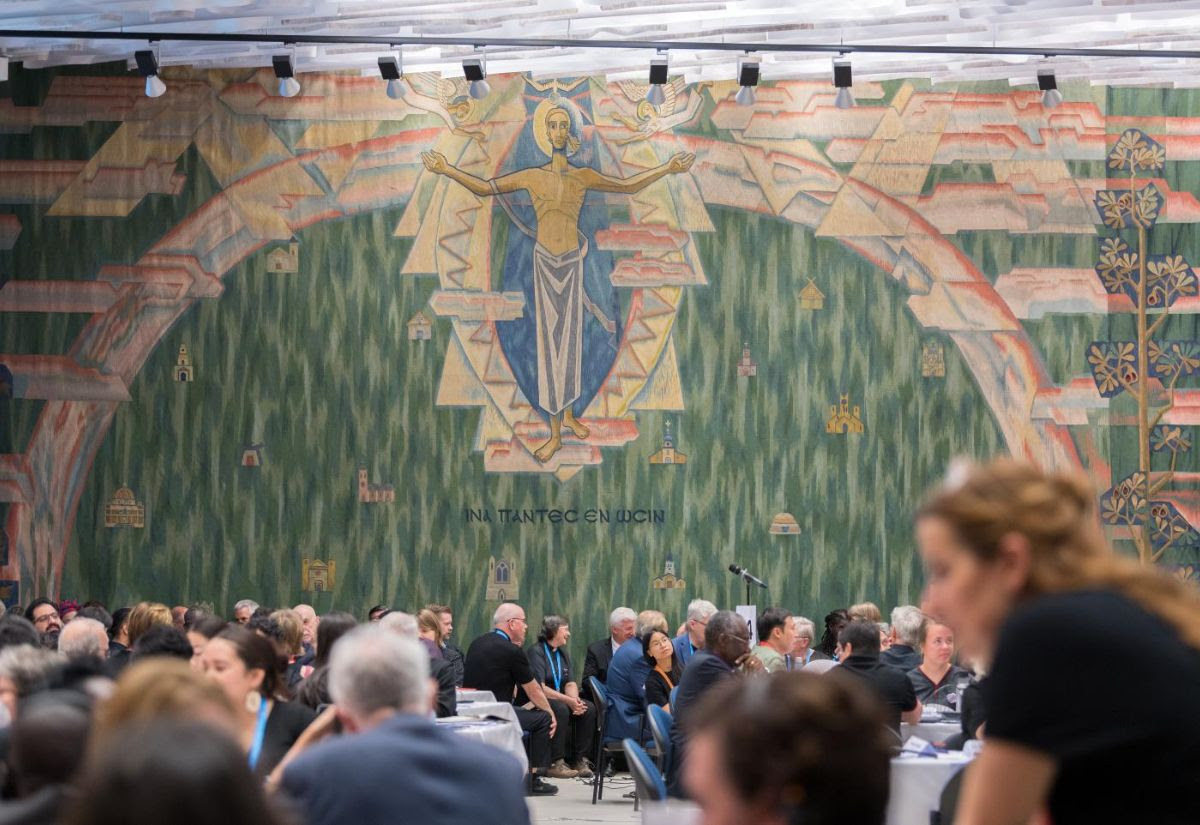Rev. Dr Nicolas Kazarian from the Ecumenical Patriarchate and the Greek Orthodox Church of America addressed the second day of WCC's 21-27 June central committee meeting in Geneva’s Ecumenical Centre. The session was on Unity and Mission before the 148 delegates at the body's first meeting since the WCC 11th Assembly in Karlsruhe, Germany. "So, the unity and diversity nexus is a powerful, sometimes paradoxical, but also transformative experience of the church founded in the Trinitarian mystery inspired by Christ's economy and fulfilled in the prophetic and charismatic work of the Holy Spirit," said Kazarian. "Just as different body parts have distinct functions but work together harmoniously. Christians recognize that diversity within the church is not a cause for division, but rather a source of strength." Kazarian, an ecumenical officer and director of the Inter-Orthodox Ecumenical and Interfaith Relations addressed the WCC's highest governing body between the council's assemblies, which usually meets every two years. No longer prisoners Rev. Dr Susan Durber, the WCC's Europe president from the United Reformed Church, told those gathered that because of Christianity, people are no longer prisoners of their places in the old world. "It is tempting to think that what the Christian world does is simply to keep the shape of the old world but to turn it on its head, so that those who were at the top now get thrown to the lions, and those who were at the bottom become top dog. But I think we all know that when that happens in this world, we simply recreate the same world of violence, resentment, and entitlement. It's just that someone else is now the victor or the victim." She said the resources owned by anyone in the community must be shared with anyone who needs them. "And this is all possible because the God we see in Jesus Christ, in defiance of anything Celsus could imagine, brought together into one, divinity and humanity, bliss and pain, beauty and suffering, immortality and mortal flesh. And, every day, we need to remind ourselves of this miracle and wonder.” Durber said the tendency in human communities is always to divide and conquer, to feed resentment and violence, to fight for dominance, and to create victims to keep alive the rivalries that separate us. Rev. Tara Tautari, a Maori theologian from the Methodist Church of New Zealand and an advisor to the central committee, spoke about companionship. "A reality that for Maori and indeed many other Indigenous peoples around the world, has been shaped by the voracious appetites of colonizers, whose rampant rampage have left as witness. Ancestral lands "Scars etched upon our ancestral lands are stolen legacies with its inherited pain, mingling with our grief, and spent companionship in this context, therefore, in its truest form, propels us as an ecumenical fellowship into that space, where reality is made and tasted," said Tautari. Furthermore, sacred canyoning takes us on a transformative and sacrificial journey beyond a comfortable, risk-free engagement to that of a companionship of solidarity that requires us to risk everything and give our all because nothing less will do She said the WCC has proclaimed a solid commitment to the accompaniment of the Justice struggles of Indigenous peoples, with a focus on Indigenous land rights and sovereignty, Indigenous spirituality, and healing and reconciliation. "The question of WCC's ongoing commitment to the struggles of Indigenous peoples will once again be answered by its member churches in your deliberations here at the central committee…and even as our collective memory echoes with resonant milestones of the past and the hard-fought incremental gains." WCC important “to proclaim healing to a broken world,” moderator urges (WCC news release, 21 June 2023) WCC general secretary provides insights into Strategic Plan, offers vision for future (WCC news release, 21 June 2023) Photo gallery of the WCC Central committee meeting WCC Central committee meeting, June 2023 | 

No comments:
Post a Comment